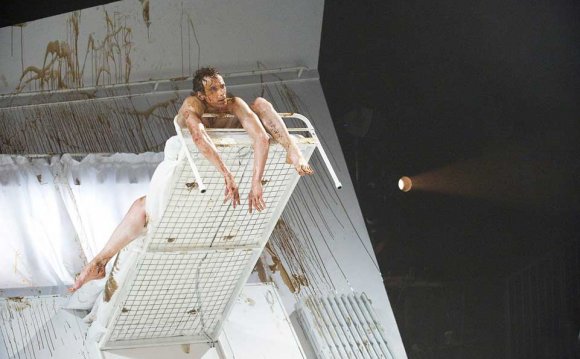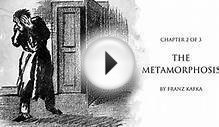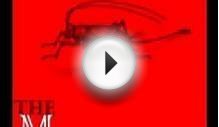

By Elizabeth McCarty
Among Franz Kafka's most popular and a lot of usually criticized works could be the short-story, "Die Verwandlung, " or "The Metamorphosis." "The Metamorphosis" is most uncommon for the reason that 1st phrase could be the climax; all of those other tale is principally falling action (Greenburg 273). Your reader learns that Gregor Samsa, the storyline's primary character, is changed into a huge pest. Not surprisingly reality, Gregor consistently work and think like any regular human would, which makes the beginning of the storyline both tragic and comical as well. But one cannot help but question why Gregor has withstood this hideous transformation, and what function it may possibly serve into the story. Upon examination, it appears that Gregor's metamorphosis signifies both their freedom from maintaining his whole financial security along with his family members' freedom from their reliance upon Gregor.
Long before the storyline takes place, Gregor Samsa's father had a business failure that left him deep in debt. His boy, Gregor, works as a commercial tourist for the business to who he owes cash; in place, Gregor is slowly working off his dad's financial obligation. Gregor just isn't happy with his job, which Greenburg calls "degrading" and "soul-destroying, " but believes that their family members' existence depends upon him "sacrificing himself by working at this meaningless... work, " therefore he goes on (274). Heinz Politzer goes far adequate to state that Gregor is a slave to their manager (276), which may mean that there's no escape for Gregor- at least, no old-fashioned escape.
However, Gregor does escape from his life of indentured servancy- by getting a giant pest. Walter H. Sokel describes the end result regarding the metamorphosis on their occupational position.
The metamorphosis features intervened and made [work] impossible. It accomplishes, even as we can easily see, partly at least, the purpose of Gregor's longed-for rebellion. It sets him without his odious task. As well, it relieves him of having to make a selection between their duty to their parents along with his yearning become no-cost. The metamorphosis enables Gregor in order to become free and stay "innocent, " a mere target of uncontrollably calamity. (265)
Here, Sokel says that Gregor, through his transformation, features solved their biggest issue. The company doesn't accept illness, so he couldn't escape work by feigning (or truly becoming stricken with) vomiting. Taking on their current bug form is the main way to totally free himself from their task. Essentially, Gregor makes a deal using the devil- he could be released of their servitude and household obligation shame free, but must live-out their staying times as a giant pest. Freud stated there had been no accidents, but merely functions springing from involuntary motives. If this is true, then Gregor's metamorphosis could possibly be considered his self-punishment and guilt for wanting to stop their job (265-266).
This metamorphosis in addition marks Gregor's freedom as a person. Throughout their lifetime, he has got let others make his decisions for him (Greenburg 274). This is actually the very first occurrence in the life over which no one (including he) had any control. This metamorphosis allows their hidden self to emerge, the self that were stifled for plenty years (Friedman 270). Gregor isn't any longer the head of family or the working-man, but a creature representing his true character (Parry 263). Gregor ended up being never truly "alive" while the mind of the home. Even when he previously ultimately reduced their family members' debt, by that time his life would have been lost (Friedman 272). In reality, Gregor's death comes never as a human but as an insect, if the family members he when support and stumbled on are based upon completely neglects him (Parry 264).
However, there is certainly one or more standpoint represented inside story. Gregor's family in addition plays a vital role and it is maybe not entirely antagonistic. Kafka reveals not only a metamorphosis in Gregor, and in the mother, parent, and cousin as well. To start with, Gregor's metamorphosis brings about hate and fear in his household, despite every little thing he has got done to assist them to (Landsberg 259). But since the household adjusts to Gregor's metamorphosis, they adjust their particular resides consequently. They had cultivated tired dependant on Gregor, but now they need to figure out how to again take care of by themselves. The household gradually becomes independent of Gregor; regrettably, because of this to take place, Gregor had to be a hideous insect. Kafka knew your family members must want its self-reliance from Gregor but still be guiltless in attaining it; the only method to make this work would be to make Gregor repulsive for them (Friedman 270-71).
Due to the fact Samsas be a little more independent, they neglect Gregor more as he starts to deteriorate and die. The greater amount of independent they come to be, the more anxious they've been to eradicate him (Friedman 270). Mr. Samsa, when totally determined by their boy for all economic help, was cut back alive. He raises his stature once again to reclaim their area whilst the guy of the home while Gregor withers and dies (Parry 264). As the family becomes entirely separate and decides that Gregor is more of a nuisance than they are able to continue to withstand, Gregor dies. Friedman noticed that this is simply because Gregor needed to be sacrificed for rebirth (271). It's like there was clearly a balance of dependence in the house- before Gregor's transformation, he was the bread-winner but still dependant on his family members for a number of things, eg refuge and love. However, following the transformation, Gregor's household becomes totally separate, simply because they require absolutely nothing from Gregor, or he's absolutely nothing to provide them. Since, eventually, he acts no function, its just suitable that he (peacefully) pass away to leave their family members their newfound freedom.
Consequently, Gregor's change had been significantly more than simply a physical transformation. It absolutely was an easy method of liberation for both Gregor along with his family members. Since Gregor was a bug, he was no longer capable work, therefore freeing himself through the bondage of their father's debt. Since Gregor cannot work, his family had to get jobs, thus releasing on their own of the reliance upon Gregor. Kafka magically makes a completely unrealistic story practical, making the reader abandon all defenses and be engrossed within tale. The figures become genuine people who have real issue, additionally the audience's concerns for all of them extends far beyond the bittersweet ending associated with tale. Gregor's metamorphosis ended up being required for their freedom, as their demise was required for the household's freedom. Gregor may have offered by the end, but the final distinct the story- "therefore was like a confirmation of their brand-new hopes and dreams and exemplary objectives that at the conclusion of their trip their girl sprang to her foot and stretched the woman youthful human body" (DiYanni 213)- give us expect the remainder Samsa household as well as their future as they return house.
RELATED VIDEO












